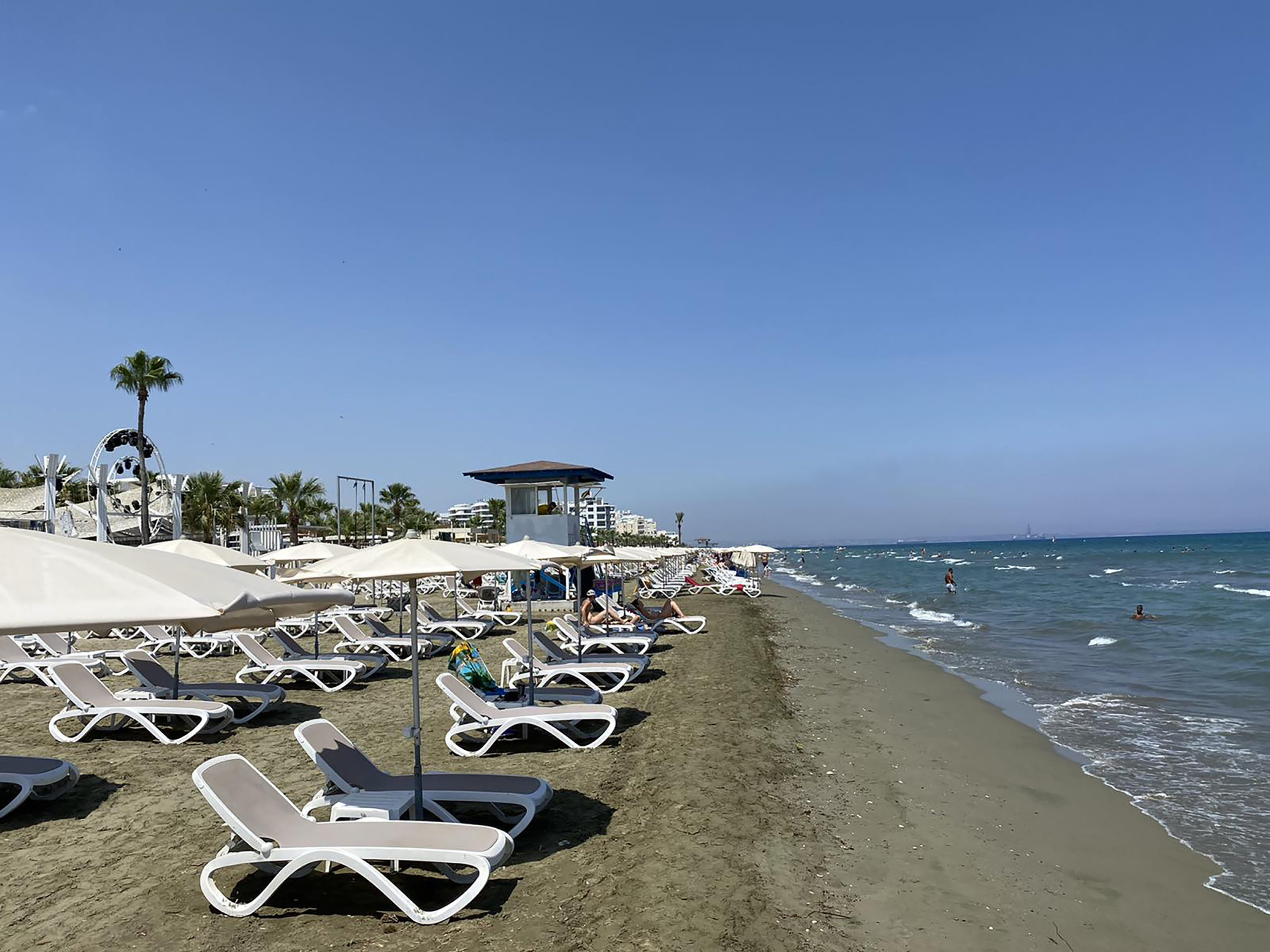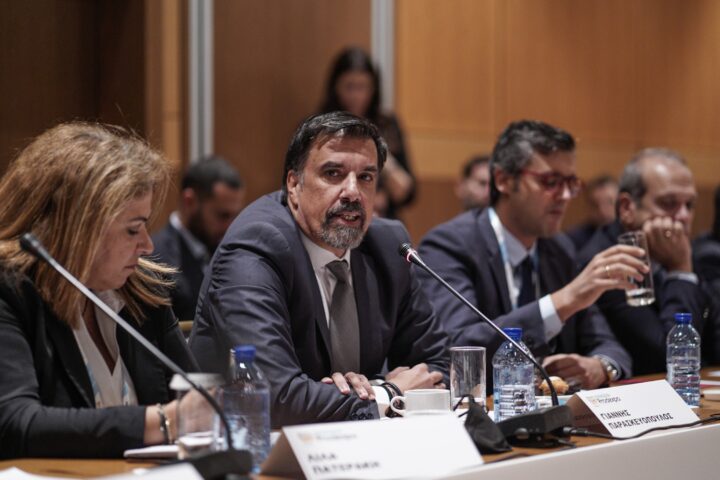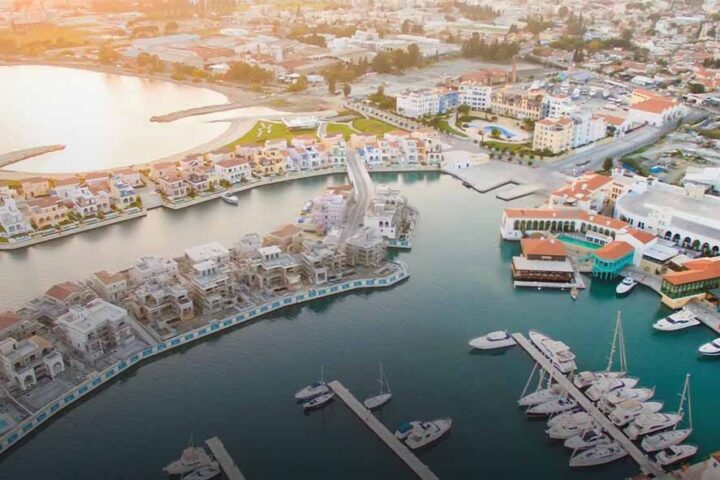It is interesting to record how public beaches are exploited by the various municipalities and other local authorities in Cyprus.
‘Beach facilities’ has so far been restricted to providing umbrellas and sunbeds, with this business worth an annual income of €1 mln per area.
In the recent scandal at Paralimni, beach collectors (municipality employees) reported only half of what they were actually collecting.
Upon their replacement, the income rose by €400,000 for a 3-month season.
This is a lot of money, and the Troika had suggested reforming the sector and going out to tender for the beach facilities.
Yet, the House turned this down, prompting the Troika to ask: “How much muscle do beach operators have in this country?”
The town that has fully taken advantage of this beach exploitation is Limassol. Along the promenade, several beach-side kiosks, although started as merely kiosk-coffee shops, have since developed into beach bars and restaurants, with a hefty income for the municipality.
Yet, when Larnaca municipality placed a kiosk on similar lines as Limassol along the Phinikoudes beach area, the District Office responded with a demolition order. The town’s Mayor is still trying to find some logic in this decision.
A well-organised beach can directly relate to property and house prices since one can enjoy a beach that is expected to be cleaned, with facilities such as WCs, lifeguards, and parking.
The whole family can enjoy a place with safety in the calm and clean Cyprus sea, considered among the best in Europe.
Paralimni is the only municipality that appears to be organised on this front.
Each small sandy bay has WC facilities and nearby parking, but no lifeguards. Every afternoon the beaches are cleaned, and it is the only municipality that provides rubbish bins enough to accommodate the visitors.
Because service brings demand, it is strange that the long stretch of the Polis-Latchi beach has limited facilities, similar to the long promenade in Paphos and other areas.
Mykonos
In countries such as Greece, the beaches are operated mainly by hotels, based on fixed goods charges that provide through a mobile kiosk all sorts of refreshments, including drinks, sandwiches, etc.
An innovative hotelier in Mykonos, who operates such a beach, in addition to the beds and umbrellas, has installed at intervals walkie-talkies so that one can order while relaxing on the beach.
Much to my surprise, most foreign users of these beach beds ordered champagne which comes with a bucket full of ice, an umbrella cover, and a stand – call it showing off, call it a convenience, there were not enough waiters to go around.
Of course, being unruly in Greece, the beds are placed right up to the waterline allowing no free space for others, whereas the bed charges are five times more than in Cyprus.
Even the charge for an ordinary glass of wine is €19, while in Cyprus, in the few places where you can get such service, a glass sells for €5.
Good and serviced beaches are those which we usually see on TV in the U.S. and other resorts.
Coming back to Mykonos, near a serviced beach around a bay, there is a luxurious holiday home development.
I was told by a proud Dutch resident that “the beach service/facilities is all the money that we spend to buy the property”.
Of course, there should be client service on some beaches, including Cyprus, to make it work for everybody’s benefit.
Our Mykonos Dutch friend added that “we paid for this house €1.5 mln and we have contributed the €500,000 to the organised beach.
Of course, if one minds other people on the beach, the organised beaches can be a minus, he added.
The night parties are a problem, and the Psarou beach in Mykonos is not for us with the all-night parties and live disco.
Lovely if you are under 40, and small units near this beach are much in demand selling at €10,000/sq.m.
A local hotel manager told me the beach entertainment is part of the local culture. Local authorities are on the bandwagon and turn rocky beaches to artificially sandy bays to accommodate demand (and more income for them).
In an attempt by the Municipality of Paralimni to improve three small bays (Syrena-Vizakia-Green Bay), we recorded objections by some people who have no idea about the before-and-after situation.
Greed brings many problems, and in the case of Paralimni Municipality, it took over governmental beach land, installed kiosks (which became bars/restaurants with no license) to the dismay of the unsuspecting residential neighbours.
There is also the new private fun park just being built without any permits right in the centre of a housing complex.
This trend of on-the-beach premium service (including food) has caught up in Cyprus with a Greek operator aspiring to reproduce Nammos Beach (from Mykonos) to Limassol’s Moni beach area.
This investor seems quite serious since he has spent over €1.5 mln to buy an old beach café and demolish it to realise a project similar to Nammos.
I feel sorry for the neighbours who don’t know what’s coming.
In an earlier article, I referred to the “innovative” Cypriot idea of beach container housing.
This time there is another idea, but the money involved is so much that I doubt that the “beach mafia” will let it happen.










